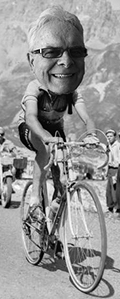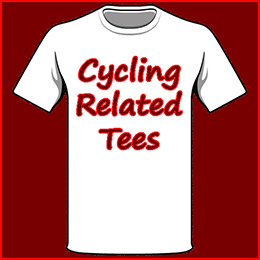Wash your hands, and don’t panic
 Fri, March 20, 2020
Fri, March 20, 2020  The recent events have caused me to think back to sometime around October 1957 when I was 21 years old.
The recent events have caused me to think back to sometime around October 1957 when I was 21 years old.
I dealt with the worst case of flu, or for that matter the worst illness I have ever suffered.
It was caused by a worldwide pandemic known as the Asian Flu.
Politically incorrect today, but if I used its other name of H2N2 virus, few would know what I meant or understand the impact it had at the time.
I lived in a boarding house in North London, located in a huge Victorian brick and stone building. I lived on the fourth floor, and as heating was by an individual gas fire in each room, when everyone in the house had their gas fire on, there was so little gas pressure on the fourth floor that heating may as well been from a candle. A bucket of drinking water I kept in the room would sometimes freeze overnight in winter.
As well as renting a single room, the owner of the home provided breakfast and dinner which we ate in a communal dining room. There was also a shared sitting room with a TV. When the virus hit, it quickly spread though almost all the residents.
I was not hospitalized but stayed in my room, and do not remember even seeing a doctor. I was given aspirin by my landlady, and food was left on a plate outside my door, where it mostly stayed overnight as I was too weak to get out of bed to go get it.
I ran a high fever and my sheets and bedding were soaking wet from sweat. My landlady would come in every day, help me out of bed and down one floor to use the bathroom. She would then change my bedding, and try to get me to eat something, or at least drink some water.
In the early stages I was either in a semi-coma, or delirious with the room seemingly spinning around. I felt like I was about to die, and one knows they are really sick when they feel that death would be a blessed relief, and they care little for the outcome either way.
I remember at least one person died in this boarding house, a nice old gentleman named Mr. Edwards, whom I had got to know quite well. Altogether some 14,000 people died in the UK, 100.000 in the US, and estimates vary worldwide between one and two million.
Looking back on these events, I can’t help but compare the situation then and now. For those of us who grew up in the 1930s and 1940s, getting seriously ill was almost a way of life. Throughout our childhood we would catch at least one (Sometimes two.) contagious diseases every year.
Mumps, measles, whooping cough, chicken pox, and German measles went though entire schools, towns and villages alike. I had them all at different times throughout my childhood except German measles.
My mother, born in 1897, lived through even worse diseases. Typhoid fever, smallpox, tuberculosis, scarlet fever, and diphtheria. Plus, the Spanish Flu of 1918 and 1919 that killed 50 million people worldwide.
Catching the Asian Flu at the age of 21 was just part of life that had to be dealt with. We knew it was coming, it had been on TV and the radio, and in all the newspapers, but life went on as normal. But back then news casters simply read the news, and the big difference was, they didn’t express opinions, and above all they didn’t express political opinions.
No one blamed the government, the then prime minister Harold McMillan, or President Eisenhour. Trains and busses kept running, people flew on airplanes. Businesses did not close, and people did not view everyone else with suspicion and bump elbows instead of shaking hands.
Looking back, I wonder, were we too complacent? Possibly, had I washed my hands a few more times, and avoided eating in the communal dining room, I may, or may not have become infected.
I can tell you what I was not. I was never at any time fearful of catching the flu. Neither were most people as I recall.
The difference was, we didn’t have news 24/7, and we did not have cell-phones or the Internet. How many times a day do I need to be told to wash my hands?
Governments are placing restrictions on everything but the news media, where restriction is needed. Tell us what we need to know, and give us some other news, not just the coronavirus.
Take precautions, but don’t panic. Look out for your elderly neighbor, go buy their groceries so they don’t have to go out. If you get the coronavirus it will be unpleasant, but it probably won’t kill you.
In spite of receiving no medical attention what-so-ever, and only being checked on once a day, the Asian Flu didn’t kill me at 21, and along with all those other childhood diseases, it probably helped me build a strong immune system that will serve me well now I need it in my eighties.
When this is over, and we compare this pandemic with past ones. Possibly the numbers will be better and there will be fewer infections and deaths. However, the way it was handled could be greatly improved.
Was it really necessary to throw the whole world's population into a panic?




















Reader Comments (17)
Exactly, can't help but think something else is going on, such a great fuss made over this virus.
The book on this has already been written. The Shock Doctrine; The Rise of Disaster Capitalism. Naomi Klein. How the rich exploit natural and man-mad disasters to get away with things they wouldn't otherwise be allowed.
Hi Dave,
Reading your closing question, "Was it really necessary to throw the whole world's population into a panic?” I assume that your premise is that the media and government are overreacting in their announcements on the need to take action on COVID-19 and should cut back on these.
I am also assuming from your comment, “Trains and busses kept running, people flew on airplanes. Businesses did not close,” that you believe the government should allow these services to continue operating during this pandemic.
If so, I think you might be missing two key considerations.
First, while getting seriously ill might have been "almost a way of life” in the 1930s and 1940s, it doesn't mean it was a desirable way of life or one our current society should try to repeat. If we do want to repeat it, why stop at the H2N2/Asian flu? Maybe our expectations should be based on 14th-century public health policy, where the black plague resulted in 45–50% of the European population dying in four years [1]. That was also a way of life (or death) that resulted in a few lucky individuals (maybe) having a stronger immune system. However, it is undoubtedly not an acceptable way of life today, even in the poorest countries of the world.
The fact is, while modern science has brought us some undesirable challenges, it has also allowed us to understand disease processes, drastically reduce mortality, and improve every person's quality of life. As a result, the people of London don’t accept mass outbreaks of cholera as a way of life like they did in the 1850s. Of course, when the physician John Snow identified a Broad Street pump as contaminated and convinced officials to remove its handle during a cholera outbreak [2], the local citizens probably thought it was a ridiculous inconvenience being thrust on them in the middle of a crisis. Yet Dr. Snow’s actions ultimately resulted in a significant improvement in general public health around the world and saved millions of lives.
In comparing 1957’s H2H2 pandemic and today's COVID-19 pandemic, we are faced with a similar situation. Back in 1957, effective policy for managing viral epidemics was still in its early stages. As you pointed out, the result was that between one and two million people died. You (and the government officials) were not "too complacent” back then. Most people, including scientists and politicians, were unaware of the correct course of action because the science was still evolving. There were hints that social distancing helped (for example, see this article on the impact of social distancing during the Spanish Flu), but it wasn’t clearly understood at the time.
Today our knowledge has advanced significantly: we now know how to reduce the death toll from a disease like COVID-19. It is called "social distancing." Yes, social distancing is inconvenient for all of us who are healthy. However, if—as a society—we act quickly and take social distancing seriously, we can avoid repeating the death rates the world experienced in 1957. I think we can all agree that the bother of not being able to fly to our tropical paradise, meet our friends in the local pub, or—my personal horror—skip the weekend group ride, is a reasonable sacrifice in order to save millions of people from a slow death by suffocation.
The second point I’d like to make is that the purpose of social distancing is not to prevent you personally from getting the virus that causes COVID-19. It is to stop you from accidentally spreading the virus to others who are not blessed with a strong immune system or a good public health system.
The sad fact is, it will not be those that ignore the social distancing recommendations who will suffer in this pandemic. It will be the poor, especially the poor in 3rd world countries with struggling health infrastructures. It will be the elderly. It will be people with compromised immune systems, like my friend who is currently fighting for his life against a malignant brain tumour.
In 1957, not washing your hands or practising social distancing was the result of a lack of knowledge. In 2020, not washing your hands or practising social distancing is irresponsible, bordering on criminal. We now know how to save lives during a pandemic. Ignoring that science could send millions of innocent people to their deaths. If the media and government have to repeat the message until we are sick of it, that is unfortunate. However, it is better than killing millions of people around the world through ignorance and inaction.
Regards,
Eric
[1] Philip Daileader, The Late Middle Ages, audio/video course produced by The Teaching Company, (2007) ISBN 978-1-59803-345-8.
[2] https://en.wikipedia.org/wiki/John_Snow
The previous poster is correct. Being a Brit. from your era Dave, I too originally thought that all these extreme measures were quite unnecessary but I now realise that limiting contact with others, not congregating in groups and self isolation are the best ways to stop the spread of this vicious virus.
Thanks Eric, for your well written and thorough response.
Dave, you say:
"If you get the coronavirus it will be unpleasant, but it probably won’t kill you."
Now I enjoy your blogs and I respect your views even if they sometimes differ from mine, but here you are really missing the point.
Please search for some good info on what is now known as 'flatten the curve', and you will then hopefully understand that too many people getting infected really is a BIG problem, even if those people themself survive it. Panic doesn't help anyone, but oversimplifying things doesn't either.
Dear readers,
My beef is not with the government or the restrictions, I am following them, I only leave home when necessary, wash my hands etc, etc.
I have a problem with the media, and the way they report the news, and constantly, I cannot complete this post without a popup window appearing with some latest news about the virus. Yes, I need to know but not 24/7.
My statement "The coronavirus probably won't kill you," is based on statistics. How many people have died in the US out of a population of over 300 million? The odds are in your favor, you probably won't die.
If you think I was being complacent, I suggest you go back and read the article again. I was simply trying to offer some calming reassuring words. We will get through this.
Dave
I
Hi Dave,
Thanks for your reply.
I agree with you on the media, however I still strongly disagree with what you say about the odds of dying from corona virus. It is not about the odds!
If too many people get infected, the spread of the virus will be so rapidly that good healthcare will not be possible for those that are in danger of dying. It’s about containing it at a reasonable, manageable level. You can think ‘okay I’ll wash my hands but if I do get infected I’ll probably survive, so I’m not worried too much’, but that’s only thinking about yourself. This is about all of us.
What is human life?
From world-wide orders telling people to stay at home, to closing non-essential business and ending non-essential travel, banning outdoor cycling in Spain, France and Italy, life has become blurred. What is essential? This sounds like the choices being made in Italy, who lives and who dies.
Does one person decide, or a group. Or are we supposed to decide that what we are doing is just not that important? Based on what?
For instance:
Do I go out riding or ride the rollers? Some say: “What if you get hit?” Well, why is riding more dangerous today than it was last week? Did cycling change? No, as always, the driver that may hit me is the one that shouldn’t be on the road. Did they consider that before driving?
Or is it because I may use resources others may need? I’ve already made the decision not to be put on life support, not to be put on a ventilator or intubation. Maybe more of us should the same thing. The needs of the many outweigh the needs of the one? Problem is, who is the one, and who are the many? Because each of us end up as the one.
Maybe more should talk about mercy killing, ending life peacefully, humanely through intervention. After all, the Hippocratic Code gives the physician the power to take life as well as save it. But they are not God, and he doesn’t check in as often.
I remember in Robert Heinlein’s Expanded Universe he relates a story, doesn’t even need to be true, about a woman who became stuck crossing a railroad track, and with a train approaching a bend, her husband attempts to free her. A tramp that hung out at the park saw this, and ran to help. The train came around the bend and had no time to stop. As they desperately tried to free her foot, all three were struck and killed.
The point, or moral is that the husband stayed with her to the end, something men should aspire to. But the tramp, who would have been blameless had he not helped, worked alongside him until the end. Nobody knew who he was, or where he came from. But they remembered what he did.
One note on the MEDIA. COMMERCIALS This is what makes to world go around.I guess Many of the news clips we see, are the same thing played over and over again THEN A BLOODY COMMERCIAL I sometimes watch PBS but then politics even crop up there. So maybe the less you know the better? This washing your hands business I also question. IF, as we are right now, do not go out and mingle with others, where is the Virus coming from to affect us? Is it flying through the air? I am 87 Marcia is 80 we are both in pretty good health we exercise etc. IF we do not have contact with anyone one, are we at such a risk? of course that is the point right Colorado so far has 8 deaths from the virus, look at how many lives are been saved, by not driving around and having auto accidents and armed bank hoists even the crooks and thieves are scared HUH!
Please don't suggest I don't care about others, nothing could be further from the truth. But people fighting over rolls of toilet paper in supermarkets, is panicking, and is that helping no one?
There is no toilet paper shortage except the one caused by people hoarding it. Brought about by a fake news story, or something that happened in another country.
I was simply stating my first hand knowledge of what happened in 1957, and nothing was learned from that. Borders should have been closed a month or six weeks ago.
Back in 1957, no one panicked, and the disease spread. Today the disease is being checked, but people are panicking. Can't we just do the right thing and NOT panic, that's all I am suggesting.
In 50 or 60 years there will be another pandemic. Some eighty something guy will be writing about the coronavirus of 2020, and sadly not a damn thing will have been learned.
Dave .
Dave is right.
As a Swiss Screw Machinist for 40 years, I returned to the shop I first worked at. A corporation had bought it. They wanted the most experienced of us to write down everything involved in setting up a machine, so that anyone could walk up and setup the machine. Of course, that can’t be done. There are way too many factors supporting this, which I won’t cite.
Science, like experience, is never settled. In the preface to Isaac Newton’s “Principia Mathematica”, Roger Cotes wrote: “Those who assume hypotheses as first principles of their speculations…may indeed form an ingenious romance, but a romance it will still be.”
The media is constantly asking Dr. Fauci of the National Institute of Allergy and Infectious Diseases: “When will this be over?”, “Are the restrictions working?”, “How long are they going to last?”, “When will we have a vaccine?”, “Can we speed it up?”, “What will be the outcome of this?”.
Dr. Fauci has probably more experience than anyone about pandemics, but he isn’t presumptuous. Indeed, this may end up way worse than projected. Or less. But infatuation with any outcome is just that.
The corporation that took over the shop wanted people to learn all the unique machines there, within a year, so they could rotate among them. I asked them “What about experience?” They said they would “Accelerate experience”.
Within a year, the shop collapsed.
Hi Dave,
I got the flu (actual influenza, not a bad cold) some years back and can agree completely with your statement:
"I felt like I was about to die, and one knows they are really sick when they feel that death would be a blessed relief, and they care little for the outcome either way."
I think it's like the old joke (about seasickness?): "At first I was afraid I would die, then I was afraid I would not."
Anyway, ever since then I've had a flu shot, something I scorned before I actually got the flu. At this stage there's no immunisation for COVID-19 but that doesn't mean you shouldn't try to avoid getting it. You can't say for sure how it will affect you, it could be anything from a mild case of the sniffles right up to requiring a ventilator in ICU.
Futhermore, just because it only gives *you* a mild case of the sniffles, what about the person you infect who dies because there were no available ventilators in the ICU?
1. I accept that COVID-19 is a novel virus and as such >80% will end up getting it at some time.
2. I would like to wait and contract it in Sept or later, when medical care loads are back to near normal and the progression, identification, and care for it are well defined.
Technically I am high risk, but perhaps medium would be more accurate. When I get it I will likely require medical treatment if for no other reason than to keep a secondary infection from killing me.
An interesting and non-panic thought.
https://www.wsj.com/articles/coronavirus-outbreaks-could-become-seasonal-woe-some-researchers-find-11584955802?mod=hp_lead_pos3
In a year, if the consensus say we overreacted then we will know we took appropriate actions.
My 83 year old sister Joan went into the hospital in England for a shoulder op and now she has been tested positive for the virus, must had contacted there in the hospital, no problems yet but makes one wonder, at least she is there to get help I hope
Hello every one,i think all blown out of air virus is inter governments plan with tycoons like Bill Gates and Rotschields clans to short down human being into much smaller matrix,much easier controlled and divided for their tycoons internal and external needs,before you try to argue about this covid-19,ask yourself to where money is going?and as soon you respond,then you get whole picture about why Bill Gates left Microsoft for sake of world vaccination and why this guy bought out main media stations long before corona to provide real time panic update to us population,fake test systems showing you are any how corona infected,survival cameras installed every where to track corona infected people?5G boiling your blood cells with ultra short radio waves and listening systems installed during all this corona virus infected season with home jailed population of what Stalin and Hitler did not dreamed and predictions of 2 and 3 waves and protection from it via chips and vaccination long before 1st wave of over blown regular flu still was on???This was perfect plan of governments,bill Gates people population haters and Soros like national antiinternational camp.you all welcome to our FB shy page to join a little bite different from world "Death" organization information about stress and panic with huge losses of the small and middle business world wide:youri churzov(FB)